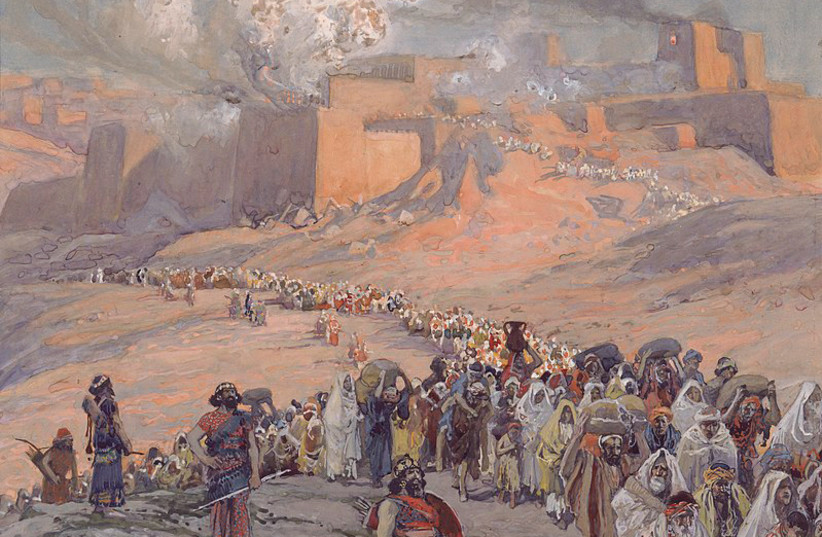September 28, 2022 marks the Jewish fast day known as the Fast of Gedaliah (Tzom Gedaliah in Hebrew).
Observed annually the day after the Jewish New Year holiday Rosh Hashanah, though the exception is when Rosh Hashanah falls on Thursday and Friday, as fast days cannot be held on Shabbat with the sole exception of Yom Kippur.
This means that ordinarily, the Fast of Gedaliah takes place on the 3rd of Tishrei, the first month in the Hebrew calendar.
Here is a rundown for what you need to know about the first fast day of the Jewish new year.
What is the Jewish Fast of Gedaliah and why do Jews fast on this day?
The Fast of Gedaliah is meant to commemorate the death of Gedaliah, a righteous Jew who was the governor of the land of Judah following the destruction of the First Temple in Jerusalem at the hands of the Babylonian Empire. However, he was assassinated by his fellow Jews, specifically by Ishmael Ben Nethaniah, who descended from the Davidic line.

His death was recounted in detail by the Roman-era historian Josephus, and is also described in the Book of 2 Kings chapter 25 and, in even more detail, in the Book of Jeremiah chapter 41.
The account in Jeremiah details the murder of Gedaliah, who was killed along with many of the Jews and Babylonians who had joined him. Due to the fact that Gedaliah, appointed by Babylonian King Nebuchadnezzar, was murdered by a Jew, many Jews feared retribution and thus fled their homes and ran to Egypt.
Gedaliah was the last Jewish ruler in the land of Israel for centuries, and his death marked the end of Jewish autonomy until the time of the Hasmoneans.
The reason for the fast, however, is also due to Gedaliah having been a righteous person. As noted in the Talmud tractate Rosh Hashanah, the fast is meant "to establish that the death of the righteous is likened to the burning of the House of God," equating the tragedy to the destruction of the First Temple itself.
What are the rules for Jewish fast days?
As is the case with most Jewish fast days, the Fast of Gedaliah is from dawn till dusk, beginning early in the morning and ending as night rolls in. The day sees the use of traditional prayer additions for fast days, such as the use of the prayer "Aneinu" during "Shmona Esrei" in the Shacharit and Mincha prayers. The "Avinu Malkeinu" prayer is also recited by the congregation, and the "Tachanun" is omitted.
Slichot is also recited during Shacharit.
When reading the Torah, the portion read is taken from parashat Ki Tisa in both Shacharit and Mincha.
Because the fast also falls during the Ten Days of Repentance between Rosh Hashanah and Yom Kippur, the Jewish High Holy Days, the typical changes to prayers said during these days also apply.
The Fast of Gedaliah is considered to be one of the four "minor fasts," contrasting from the full fasts of Yom Kippur and Tisha Be'av. As such, it does not have the additional restrictions the full fasts have, and some of the rules may be seen as more lenient. For example, pregnant and nursing women, even when not sick, are not required to fast, as noted in the Shulchan Aurukh.
When does the fast end?
The exact times for when the fast will end can vary based on your customs and locations. The following times are taken from MyZmanim:
Jerusalem
- 6:55 p.m.
Tel Aviv
- 6:57 p.m.
Haifa
- 6:56 p.m.
Beersheba
- 6:57 p.m.
Eilat
- 6:56 p.m.
New York
- 7:13 p.m.
Los Angeles
- 7:09 p.m.
